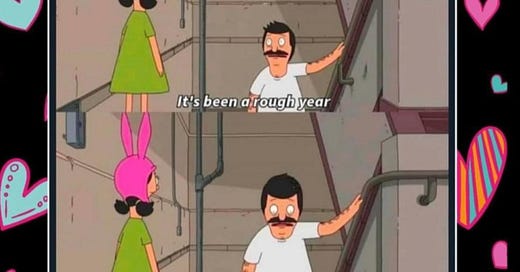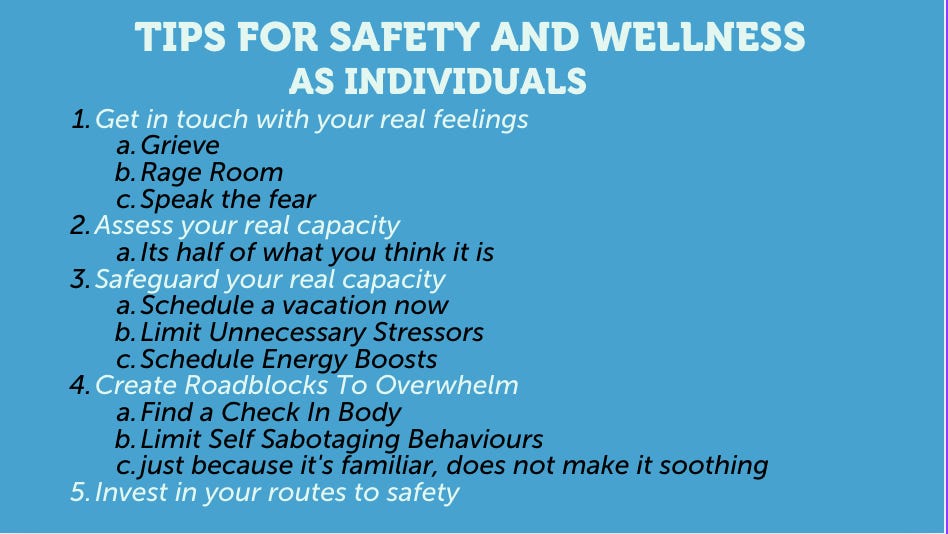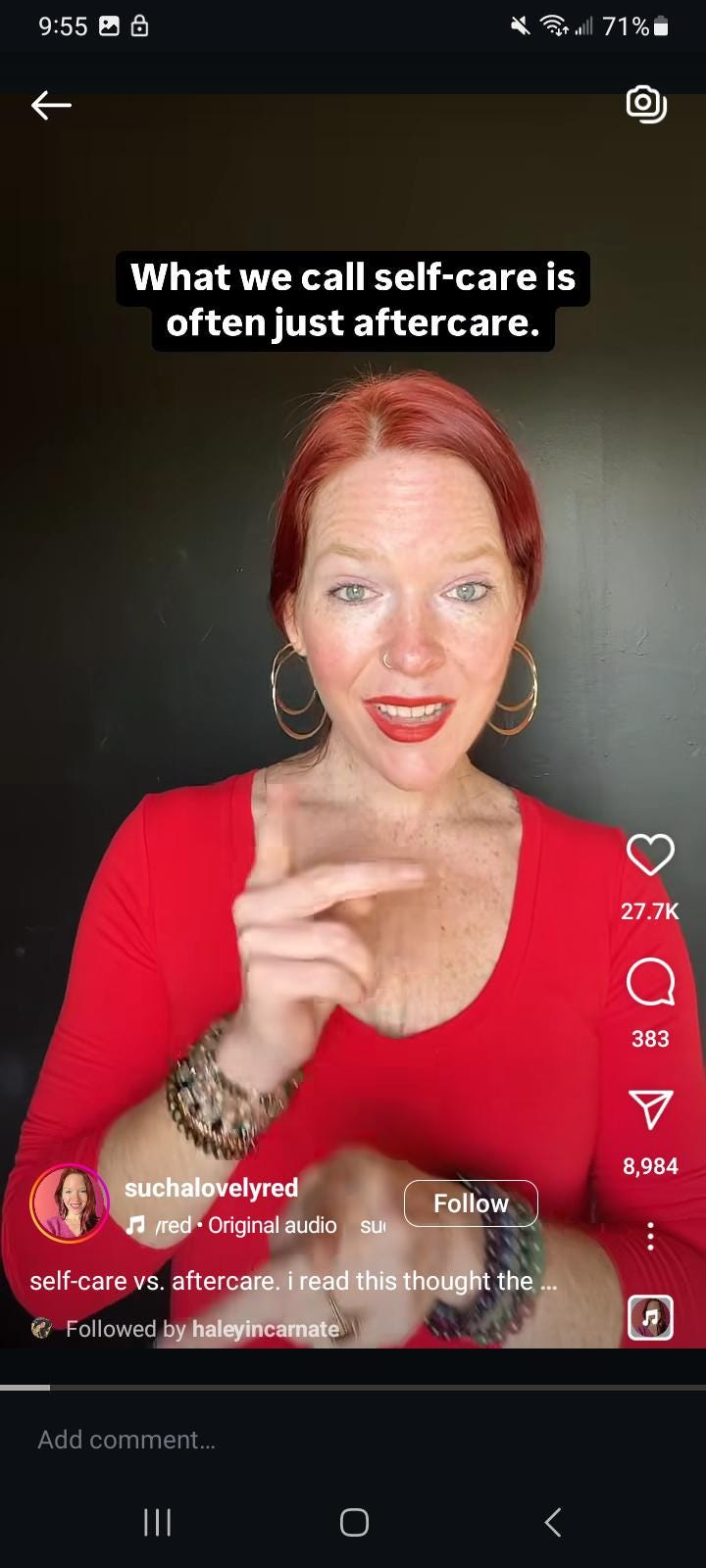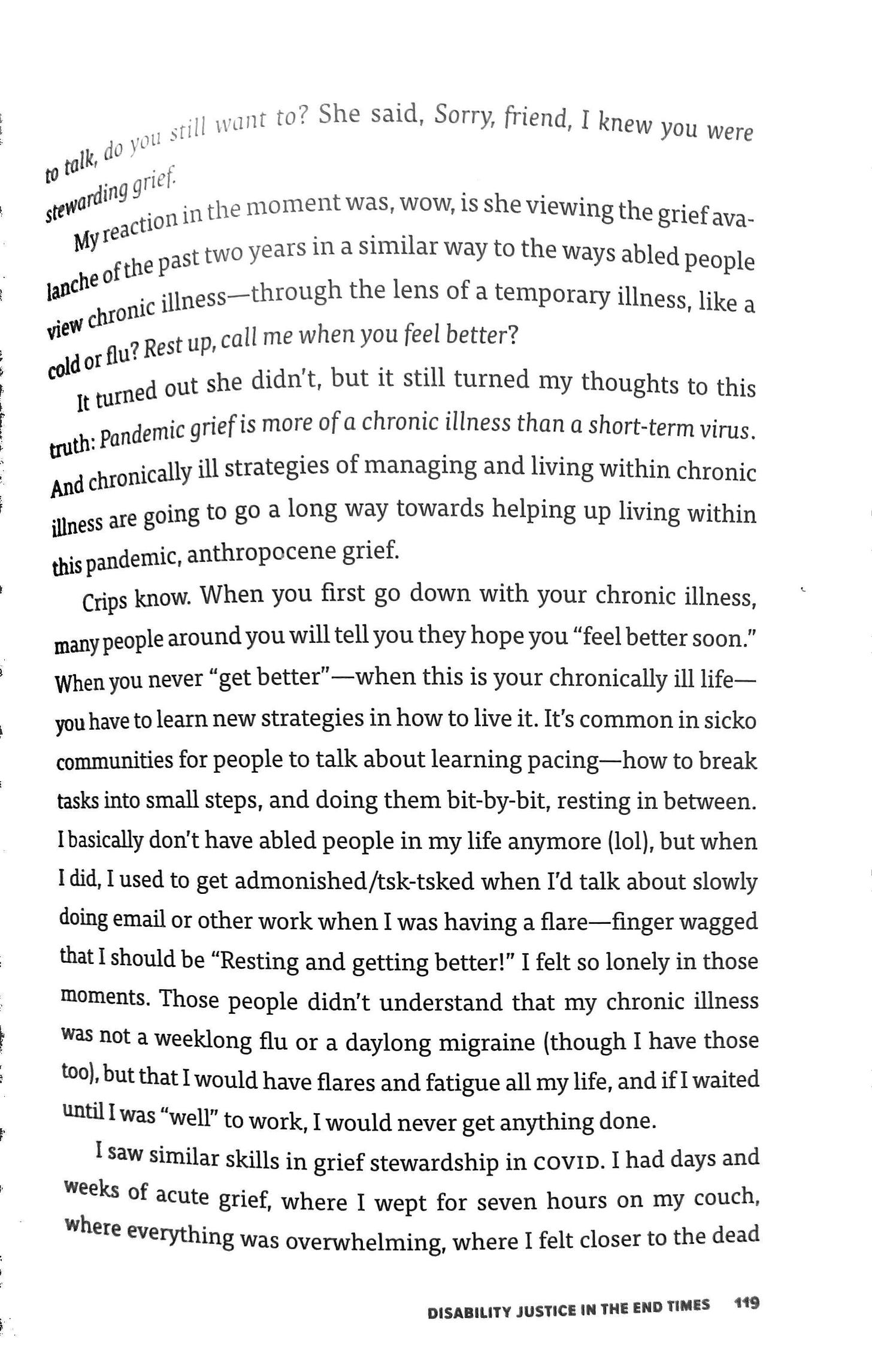Welcome to Wandering Grace. I share essays exploring the themes of displace(ment) and un(be)longing 1-2 times a month that follow the stops of my 2023 Migration Tour, and sometimes bonus snapshots from the road. Read more about the project here. See an archived list of essays in-order here.
Last week, we sat with fear in our soft animal bodies. This week, as a bonus, I wanted to share a few links that have helped me orient in these transformative and challenging times that we find ourselves in.
I. Orienting towards change
We are in a time of change. I mean, we always are — ‘the only constant is change' as The Parable of the Sower reminds us — but this is a time of really enormous transformative change.
I found this piece from Orion Queer really orienting towards what it means to embrace change vs. being in denial about it.
“We are catapulting rapidly towards massive change. There’s a huge momentum going that’s been brewing and speeding up for years now, maybe even decades. We’re at this point in the current of change where it’s becoming more and more impossible for folks to ignore it. People like ignoring change, it’s what we do when we’re scared of it. Lots of us tend towards ignoring it for as long as is possible until it hits us smack in the face and pushes us over and we can’t ignore it anymore. I think we’re approaching that point. Many of us already see the change happening and have embraced it fully. Many see the change and are fighting it tooth and nail. And many others are trying their darnedest to ignore it completely, to block it out, avoid it, and pretend things can just stay static or as they once were.
“The thing is, the change is already happening. It doesn’t really matter if we embrace it, fight it, or ignore it–the change is happening regardless of our choice in response. Embracing it will make it significantly easier for ourselves though.”
As bell hooks says: “In our rapidly changing society we can count on two things that will never change. What will never change is the will to change and the fear of change. It is the will to change that motivates us to seek help. It is the fear of change that motivates us to resist the very change we need.”
This is also the place where my practices from buddhism, mindfulness, radical acceptance have helped me continue to be with the presence of change, instead of afraid of it, with what’s happening right now, instead of wishing otherwise. Some trailheads in those directions: When Things Fall Apart book by Pema Chodron. This talk by Kaira Jewel Lingo on “The Power of Equanimity in Engaged Spirituality” from Dec 9, 2024. (Equanimity as the powerful combo of radical acceptance + compassionate action towards a better world instead of from a posture of ‘trying to fix’ in order to run away from what is.)
II. Orienting towards safety
Aaron Goggans of the WildSeed Society offered this webinar on prepping for the election back in November, and it’s packed full of wisdom.
What got me interested in the recording was this adapted framework of the Block-Build-Be framework (originally created by Buddhist Peace Fellowship).
What stuck with me from the webinar was their distinction between safety (the somatic experience of feeling protected against harm — based on both internal and external cues) vs security (the external activities we do to protect ourselves against threats).
I have been moodling on this idea of safety vs security for some time now — I would love to write an essay diving into it more. For me, the piece I want to interrogate is what happens when we externalize our safety and our anxiety into things that the colonizer has taught us will keep us secure (think: land ownership, home ownership, private property, contracts, cops, fences, border walls)…but which ultimately destroy the community fabric, which ultimately separate us from each other instead of bringing us together, which ultimately makes us less safe in the long run. This at ALL the fractals of: individually I want to save up enough to buy my own home because I’m sick of housing insecurity; societally what is the cost of stolen land and genocide to make private property possible in the first place; essayically what does it mean to be rooted in safety in place during a time of climate collapse when our relationship with weather and place is both threatened and threatening all at once?
Enough of my aside. Back to the WildSeed presentation. Here are some of their slides of tips for safety and wellness.
TL;DR it’s about boundaries and actual self-care for being in this work long-haul.
When people say: “we keep us safe” and are pointing to mutual aid and community during these times, it’s because true safety comes from our interconnectedness.
PS. This Instagram reel: what we call self-care is often just aftercare. Are we tending to the conditions and boundaries we need in our lives, so that we need less aftercare…?
III. Orienting towards the long now.
In a funny way, it’s been deeply grounding to have spent some of these last two years reading about the Yellow Umbrella Movement in Hong Kong, about the Cultural Revolution before that and its toll in Tessa Hulls’s Feeding Ghosts, about the 150 year movement for the Metis people to gain federal recognition as a tribe after so much genocide and land theft and displacement in Chris La Tray’s Becoming Little Shell, about 150 years of Palestinian resistance.
Orienting towards a longer time horizon — connecting to my place in time in the flow of time between past and future — being with the humility that I am smol in the grand scheme of things. That the stuff we’re facing now is not new, in a comforting way.
I am currently reading in a very non-linear fashion essays from Leah Lakshmi Piepzna-Samarasinha’s The Future is Disabled. This essay about “Disabled Grief Technologies: Disability Justice Future-Building in a Time of Mass Grief” is sticking with me and sticking with me (and will probably make its way into a future Wandering Grace essay.)
This is helping me reorient and unlearn some mindset I have around the idea that “we just have to get through this one disaster, and then we will have time to go back to normal life and then we will get to chill, and then I can get back to work on my projects”. Hold your breath mentality.
I don’t think 2025 is going to be a chill year. I don’t think climate collapse is going to get slower, or going to give us time to rebuild before the next thing hits.
Which makes it ever the more important to take rest and revel in joy and lean into care whenever and however we can. Because it is what will sustain us in the long-haul of the new rhythms of our current world’s needs.
And we can learn from those who have experienced deep grief early on in life, those who have crip wisdoms and disabled technologies, those who have witnessed many more decades, those whose ancestors taught them survival and resilience and dance and joy, and those tree beings who have lived here many more centuries than we have.
Don’t forget to breathe.










